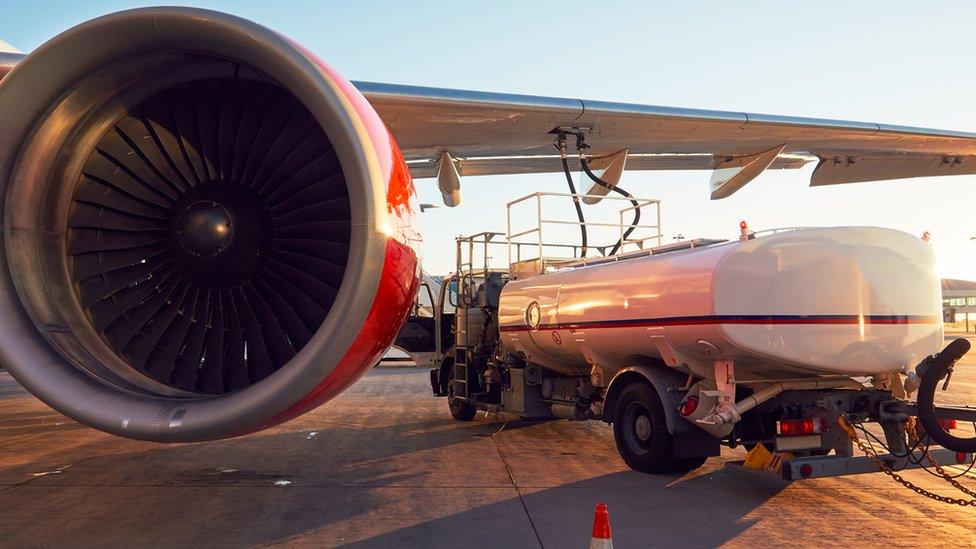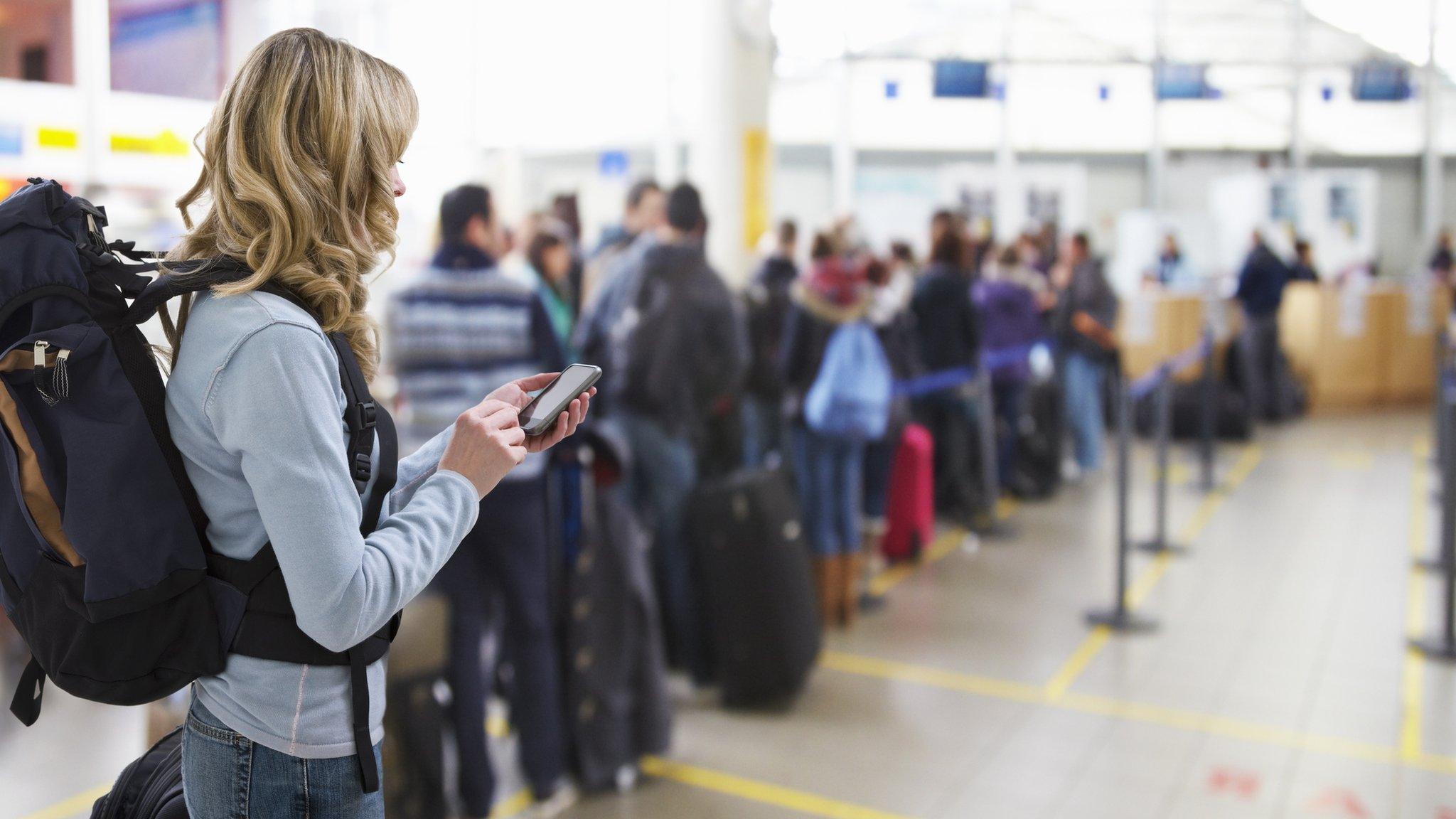Refuelling staff to stage three-day strike at Heathrow
- Published

Several airlines at Heathrow Airport could face disruption due to refuelling staff striking later this week.
A total of 50 workers from Aviation Fuel Services (AFS) will stage a three-day walkout from 05:00 BST on Thursday to 04:59 on Sunday in a row over pay.
Airlines affected include Virgin, United, KLM, and Air France.
The strikes come as passengers have faced delays and cancellations in recent months, largely due to staff shortages in the aviation industry.
The UK is about to enter the key summer holiday season as schools begin to break up and there are concerns travellers will be hit by further disruption and delays to journeys.
Airports and airlines, which cut jobs during the height of the coronavirus pandemic, have struggled to recruit staff as demand for international travel has returned.
It has led to Heathrow Airport demanding airlines stop selling summer tickets and placing a cap on passenger numbers per day.
Unite union said the industrial action would "cause delays to hundreds of flights", claiming AFS workers were responsible for refuelling half of the non-British Airways traffic at Heathrow.
It is understood AFS is one of a number of refuelling companies which operate at Heathrow and that airlines affected are responsible for finding alternative suppliers for their flights.
A spokesman for Heathrow Airport said it was in discussions with airlines "on what contingency plans they can implement, including using other fuel suppliers already operating at the airport".
The BBC has contacted several of the airlines for comment.
Virgin Atlantic spokesman said it had worked on "several contingency measures, which can be deployed" if the strikes go ahead.
"Our priority is to ensure that our customers can complete their travel plans, regardless of the proposed strikes, with minimal disruption," a spokesman said.
Emirates told the BBC it would "not be affected" by the AFS strike.
It is understood contingency measures include getting planes flying into Heathrow to carry additional fuel or having departing flights refuel at destinations. Using alternative fuel suppliers is another option.

Queues, delays and cancellations frustrated many thousands of travellers at Easter
Sharon Graham, Unite general secretary, said AFS was "wholly owned by incredibly wealthy energy companies who are entirely able to provide our members with a decent pay increase".
Unite said its members had not received a pay rise for three years, adding AFS had made an offer of a 10% increase which was "rejected by members as it did not meet their expectations".
Prices are currently rising at the fastest pace for 40 years, prompting many unions and workers in the UK to ask for pay increases.
Railway workers, train drivers, postal workers and check-in staff at Heathrow are among several groups to strike or vote in favour of industrial action in recent weeks.
Inflation, the rate at which prices rise, hit 9.1% in May and is forecast to go higher later this year. There are concerns that wage rises to cope with the current cost of living could fuel further inflation.
AFS is a joint venture operation, which includes firms BP, Total Energies, Q8 Aviation and Valero Energy.
A statement from AFS said the strikes would "restrict our ability to refuel planes" at Heathrow.
The company said it had "put on the table what we believed to be a fair and reasonable offer".
It said Unite had "omitted" a number of elements of the pay off which included bonus, overtime increases and backdating of pay.
"We know that our employees are concerned about the rising cost of living, as are many people employed in other sectors up and down the country," it added.
"We urge Unite to postpone industrial action to engage in further mediation. Nevertheless, we are continuing to work towards a resolution."
Unite regional officer Kevin Hall said the dispute over pay was "entirely of AFS' own making".
"It initially refused to enter into negotiations and only belatedly made an offer which workers judged entirely unacceptable," he said.
But he added: "Even at the eleventh hour strike action could be avoided if AFS made a substantially improved offer."
- Published14 July 2022

- Published14 July 2022
